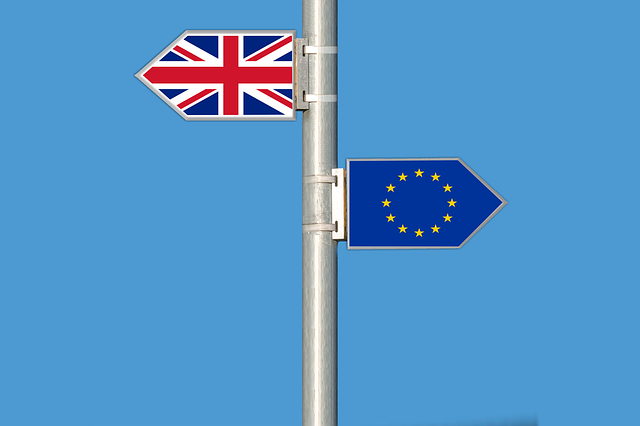ANDREW DAVIS on Post-Brexit trade: teething problems
According to the British newspaper Observer, the country's exports to the European Union fell by 68% from January 2000 to January 2021 (February 2021).

According to the UK's Observer newspaper, exports from the nation to the European Union were down 68% from January 2000 to January 2021 (February, 2021). This troublesome news struck a month after the signing and ratifying the post-Brexit Trade and Cooperation Agreement, guaranteeing continued free trade between the two parties. How much of this decline was down to red tape written into the agreement, and how much was due to other uncontrollables such as the coronavirus sanitary crisis? Similar horror stories abound in the papers, about UK exporting companies experiencing new obstacles when exporting to the EU. How much fuss towards the agreement is down to exporting companies' genuine anger towards increased difficulty to trade, rather than sensationalism caused by the press? This article will address business and consumer concerns surrounding the Trade and Cooperation Agreement during its initial stage.
The UK government is calling this slow-down in post-Brexit trade a result of 'teething problems'; a required learning curve as exporters go through the process of growing accustomed to the new norms and requirements of the Trade and Cooperation Agreement. Despite the promise and eventual delivery of zero tariffs for all merchandise traded between the UK and EU, non-tariff barriers have presented traders with bureaucratic red tape, forcing delays at ports of exit and entry due to customs clearance and security matters. Added administrative paperwork such as health certificates, customs declarations, and environmental permits have caused companies anger, in spite of the expected change as a result of the inevitable change.
Consumers in Europe are being confronted by higher prices for certain products from the UK for online purchases, apparently not protected by the rules of origin supposedly provided by the Trade and Cooperation Agreement. It turns out that if exported products from the UK originate from China, for example, an importing country in the European country will impose tariffs. This is happening to an exporter of second-hand articles from North East England, which is finding that providing clothes to Latvia is becoming more expensive than pleasurable, as customs agents in the importing country are slapping on 5.3%. Import duties are an indirect tax that consumers are having to pay as a result of the deal for certain products; this is often confused with tariffs which are rightly assumed to have been reduced to zero, being a direct tax imposed by import customs at the port of entry.
The Northern Ireland protocol under the Brexit agreement maintains free movement of people, goods, and services between Northern Ireland and independent Ireland (part of the European Union) under the auspices of the 1998 Good Friday Agreement. This effectively means that Northern Ireland - part of the United Kingdom - has been left as part of the European Common Market. There is a catch, however, as goods are checked inland across the Northern Irish border and there is also a 'regulatory border' along the Irish Sea between Northern Ireland and Great Britain. To complicate things further, there is a pandemic going on, and the European Union has just threatened to close the Irish border (rather like the US threatened to do during negotiations), to close off 'back door' COVID-19 vaccine exports to the UK, setting off a political conflict. This whole scenario is of course unsettling consumers, exporters, and importers alike in Northern Ireland. There are even possible terrorist threats against regulatory officials along the Irish Sea border, temporarily disrupting trade between Britain and Northern Ireland.
Consumers in Northern Ireland are complaining about the scarcity of products from Britain, sparking off a fresh debate about the region's position in the UK, and whether it is really part of the Brexit deal for leaving the EU. From the beginning of withdrawal negotiations in 2018, the Irish border became the sticking point as Brexit would conflict with the Good Friday Agreement; separation from the EU would severe free movement between the two Irelands completely. Eventually, Northern Ireland Protocol, agreed between the Johnson government and the EU in November 2019, would respect free movement at the border and place customs checks inside Northern Ireland, as well as regulatory checks along the Irish Sea. Now the Trade & Cooperation Agreement is in place, large department stores are unable to logistically get their products to their clients in Northern Ireland in a timely manner, or indeed at all, and consumer confidence is declining as fast as sales.
The Shellfish industry has been particularly hard hit. As a result of Brexit, the European Commission is only accepting shellfish harvested from Class 'A' waters or be cleaned prior to shipment with a health certificate. This has caused much hardship for exporting companies, even resulting in closing down businesses as most such companies do not have access to such waters. The legislation was supposedly due to be lifted in April of this year (2021), however, the promise is probably not to be kept (the UK and EU governments are now of course at loggerheads about it as the complaints drag on). It is now common for entire shipments originating from the North of England to turn back from ports in the South due to delays for the risk of wasting tonnes of merchandise.
There is a familiar trend developing, much like that of Mexico with other USMCA (T-Mec) partners here in North American: that of exporting companies to set up subsidiary distribution hubs or fulfillment centers overseas to handle complicated customs clearance processes. For UK companies to do so in Europe this is particularly inconvenient and annoying, as until 2020 they have been part of a single market with free access to the continent as part of the European Union; such direct investment was unnecessary. However, as this article points out, many exporters have had to halt their exports and some have even gone out of business altogether; setting up shop in Europe seems to be the only solution in certain cases. Perhaps joint ventures or other strategic alliances could be a way of sharing the risk with European or UK partners and reducing the burden of investment; the UK & EU governments would also be well-advised to provide incentives to promote such activity.
The truth is, business big and small had planned and was prepared for the transition, despite the uncertainty and governmental procrastination surrounding post-Brexit FTA negotiations. The advent of the Trade and Cooperation Agreement on the 1st of January did indeed cause increased red tape and inefficiencies in trading, however, this was to be expected. Some trade to the EU will undoubtedly decrease, and a certain amount of commerce will be diverted elsewhere, but this contingency was be expected both from the perspective of both business and government.
By: Andrew Davis, Lecturer in international business from Tec de Monterrey University with a track record undertaking private research projects, participating as a consultant for SMEs, conducting international promotion activities, export feasibility, and international market research.




